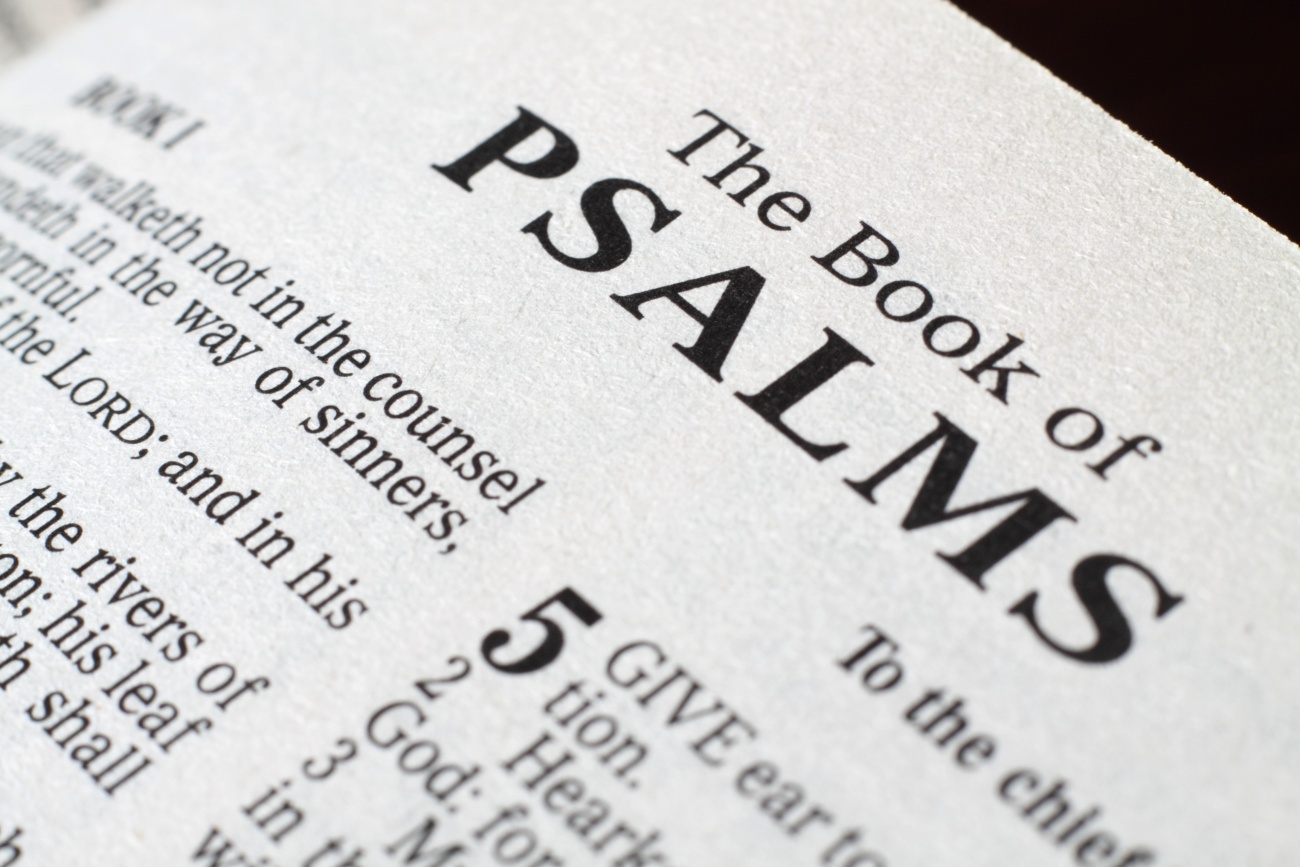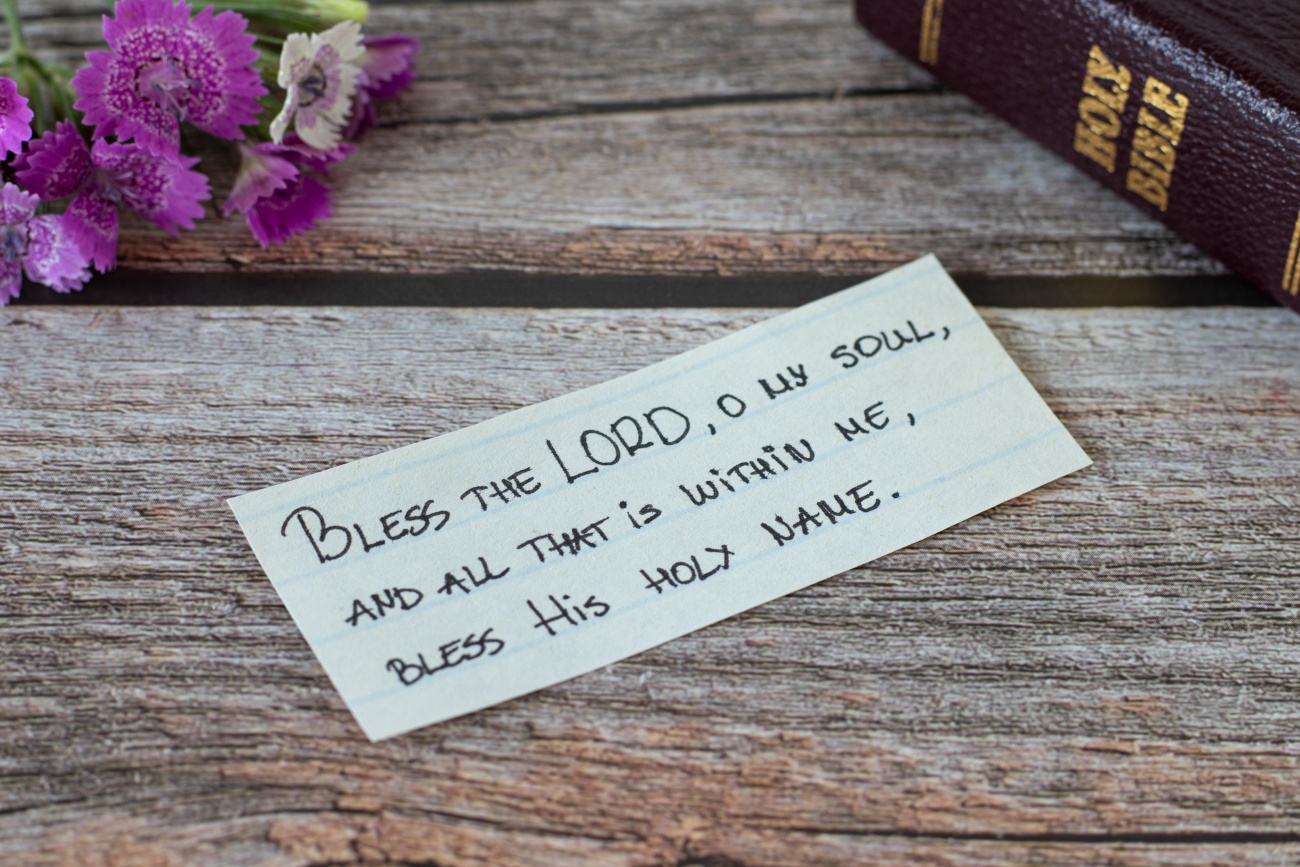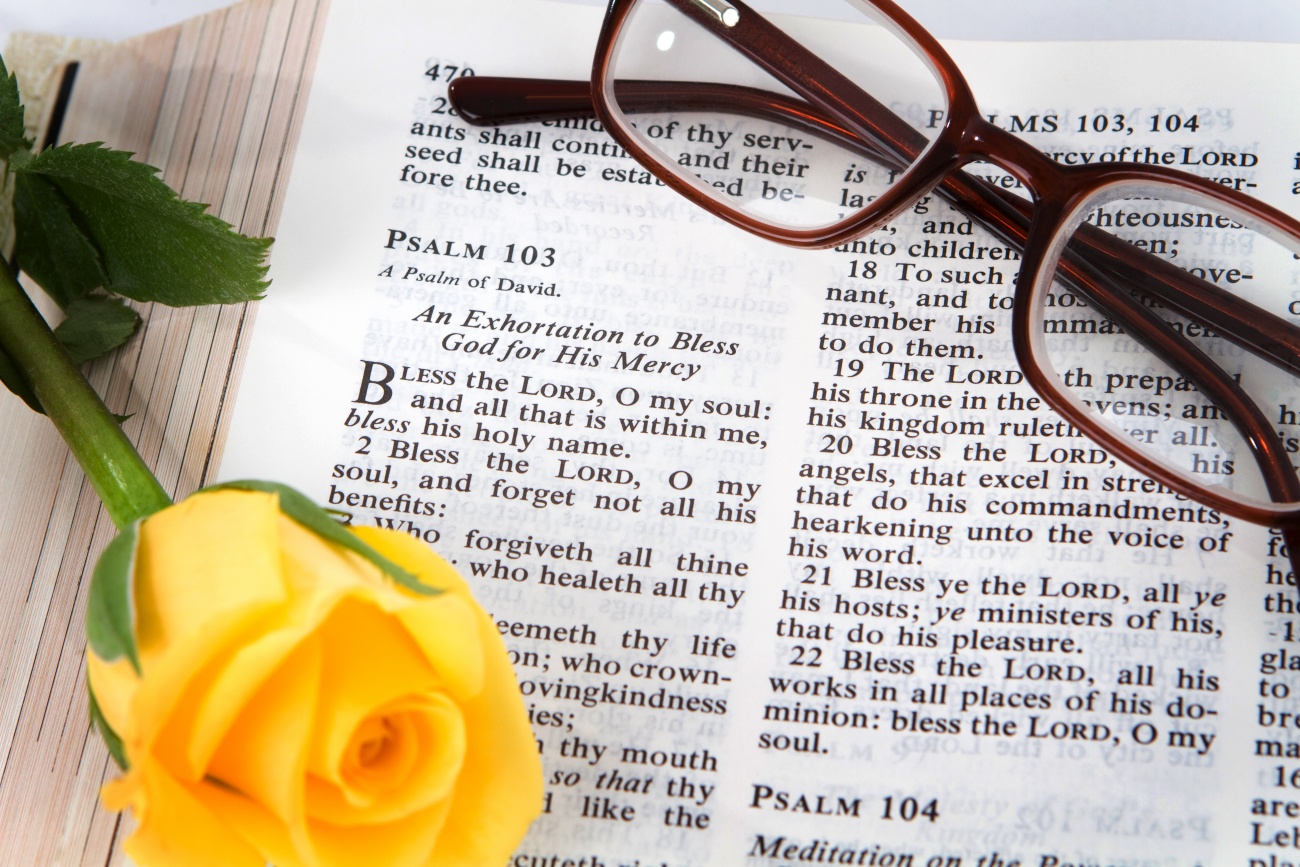Many years ago now, I purchased a pocket-sized book of the Psalms and the Gospels. I began reading the Psalms regularly, dipping into them, reading them one at a time, and meditating on them. That little book made a very deep and needed impression on my mind and my heart. The psalms are now, along with other scripture passages, a common part of my daily morning and evening prayer times. I have my favorites, of course, and Psalm 103 is at the top of my list.

The Psalm begins where all prayer ought to begin, with praise and thanksgiving for all the gifts we receive from the goodness of God. “Bless the Lord, my soul;/ all my being bless his holy name (verse 1)! This is followed by a litany of some of those gifts beginning with the most powerful and beautiful gift of his “pardon for all of our sins”. This gift is oriented to our immortal, eternal souls, and in that sense, it is the greatest of the gifts. It “redeems us from all of those ills that injure, or sicken our souls. It “crowns us with mercy and compassion and renews our youth like an eagle’s” (v. 5).

In all of this, we are learning the nature of our God and his love for us. “Merciful and gracious is the Lord, slow to anger and abounding in mercy” (v. 8). To reinforce that idea we read, “He will not always accuse”, and unlike us, he will “nurse no lasting anger”. Again, unlike us, he does not “deal with us as our sins merit, or our wrongs deserve” (vs. 9-10). God’s sense of mercy is, in the language of our day, mind-blowing to us. So much so that the psalm has to use metaphor, the language of poetry to try to explain it. His mercy is greater than the “heavens that tower over the earth for those who fear him. His mercy and forgiveness remove our sins from us as far as “the east is from the west”. All of these images imply a sense of the infinite.

The psalmist intuits why this is so in verses 14-16, “For he knows how we are formed, remembers that we are dust, that our days are like the grass, or the flowers that blossom in the fields that are so fragile that the winds sweep them away and “its place knows it no more.” But then this understanding is followed by the majesty of God’s ways when it says, “But the Lord’s mercy is from age to age, toward those who fear him.” Again we hear that word “fear”, but it is very important to recognize that it is not the modern understanding of fear that is referred to here, rather, it implies reverence, respect and humble awe.

In revealing the nature of God, the psalm also reveals the truth about ourselves, that we are not God, that we are utterly dependent on his mercy and his love. The truth revealed here is that God’s love is infinite, and, though we all too often pridefully turn away from him, he responds with infinite and absolute mercy to those who turn back to him in humble recognition and awe. Such divine goodness overwhelms us. Is this not a reason for joy! Such love is beyond our imaginations. It transcends everything we know and experience in this broken world. Is this not, then, a good reason for all of creation, especially we his children, to be enthralled with gratitude and thanksgiving? Is it not, then, utterly appropriate that we, too, should pray with grateful joy, as the psalmist does in verse 22, the last line of the prayer, “Bless the Lord, my soul?”
SKM: below-content placeholderWhizzco for FHB

